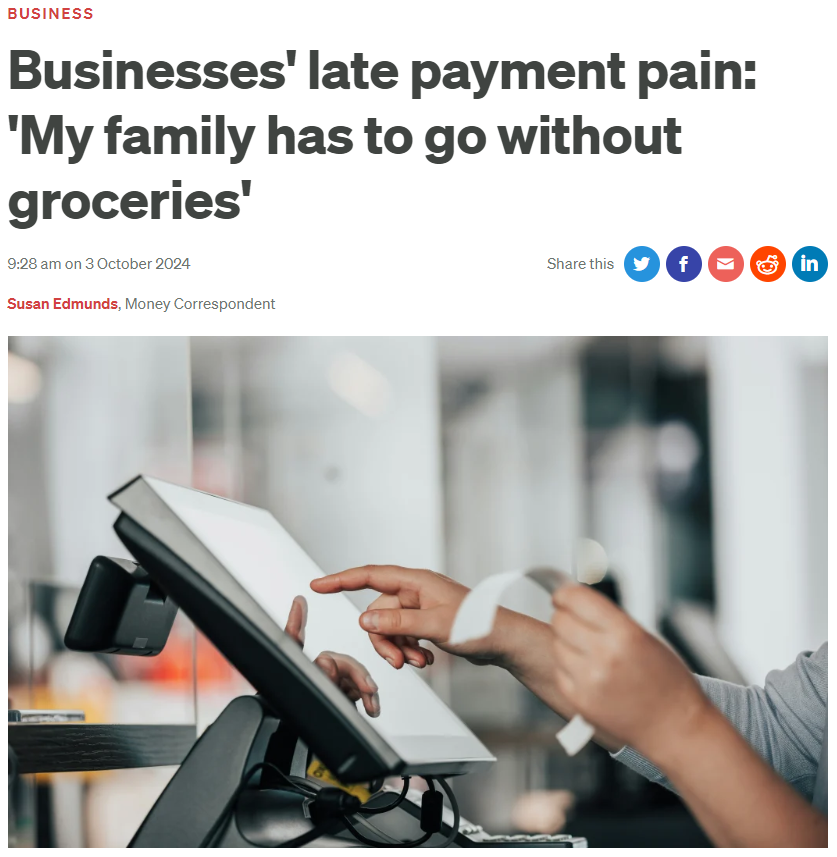Late payments are becoming an increasing burden for small businesses, with new data from accounting platform Xero revealing just how costly this issue has become. Xero’s report shows an alarming 81 percent rise in the cost of late payments to small businesses, surging from an estimated $456 million in 2021 to a staggering $827 million in 2023. This sharp increase in late payments has significant consequences for small business owners, employees, and their families, threatening not only cash flow but also livelihoods.
The Financial Toll of Late Payments on Small Businesses
Small businesses often operate on tight margins, making any disruption to their cash flow potentially devastating. When customers delay payments, owners are left struggling to cover their operating costs, including payroll, rent, and inventory. Xero’s data demonstrates that these late payments are far more than a minor inconvenience—they are a growing financial drain on businesses that are already managing tight budgets.
In 2021, the total cost of late payments to New Zealand’s small businesses was $456 million. By 2023, this figure had ballooned to $827 million, an increase of 81 percent. For many small businesses, waiting weeks or months for payments causes a cash flow crisis, forcing them to take out loans, cut essential costs, or delay critical investments in growth.
This financial strain not only hinders business expansion but can also lead to the scaling back of operations, including reduced employee hours and delayed hiring plans. Ultimately, this dampens business growth, making it harder for small businesses to compete in an increasingly fast-paced and competitive market.
Real-World Impact: Families Feeling the Strain of Late Payments
Xero’s data also highlights the human impact of late payments. For small business owners, cash flow disruptions translate into very real personal consequences. Many small business owners don’t pay themselves until their customers pay them, meaning that delayed payments lead to direct financial hardship for owners and their families.
An RNZ report sheds light on how severe the issue has become, quoting a business owner who said late payments had gotten so bad that “my family has to go without groceries.” This situation reveals the human side of the late payment crisis—small business owners are forced to make personal sacrifices, like going without essentials, just to keep their businesses afloat.
For many, owning a small business is about more than income; it is a way to provide for their family. When late payments persist, the financial stability of not only the business but also the entire household is at risk. This adds to the emotional and psychological strain that late payments can cause, making it an even more pressing issue for small business owners to address.
The Broader Economic Impact
The cost of late payments doesn’t just affect individual businesses; it has a wider impact on the entire economy. Small businesses play a vital role in the economic ecosystem, but when they face cash flow problems, their ability to contribute to the economy is diminished. Late payments can hinder growth, limit job creation, and reduce overall investment in the market.
Small business owners are also less likely to invest in innovation and expansion when their cash flow is compromised, further stifling economic growth. And for those considering entrepreneurship, the fear of financial instability caused by late payments might dissuade them from starting new ventures, resulting in fewer businesses entering the market.
A Solution: IPromise
One potential solution to the late payment crisis is IPromise, a platform designed specifically to address the issues of delayed payments in the business community. IPromise aims to foster greater accountability and trust between businesses and their customers by offering a platform that ensures timely payments. In fact, IPromise boasts an average payment time of 4 hours from job completion. That’s over 150 times faster than traditional invoicing.
IPromise enables businesses to secure payments from customers before starting work, reducing the likelihood of late payments. The platform operates on a transparent system where businesses and their customers can agree on payment terms in advance. This eliminates much of the uncertainty that currently plagues small businesses.
By offering a streamlined system for managing and securing payments, IPromise not only protects businesses from the financial strain of late payments but also helps them maintain healthy cash flow. This can eliminate almost all of the issues that arise from delayed payments, including personal financial strain for business owners, loss of business growth opportunities, and broader economic impacts.
Moreover, platforms like IPromise are becoming essential tools in a world where small businesses increasingly need to take control of their cash flow. By providing a reliable solution for securing payments, IPromise empowers small business owners to focus on growing their business without constantly worrying about whether or not they’ll be paid on time.
Conclusion: The Need for Change
Late payments are not just a financial issue for small businesses—they are a significant barrier to growth, innovation, and economic stability. The growing cost of late payments, now reaching $827 million in New Zealand alone, highlights the urgent need for a solution. Despite the efforts by accounting software providers to encourage businesses to use e-invoicing, send payment reminders and offer various payment methods, the cost of late payments continues to grow at an alarming rate. Fortunately, platforms like IPromise offer an innovative way to combat this problem by securing payments before work is started, ensuring that businesses are paid on time, reducing stress, and fostering better relationships between businesses and their clients.
By adopting solutions like IPromise, small businesses can regain control of their cash flow and avoid the devastating effects of late payments. As more businesses turn to this kind of platform, the hope is that late payments will become a thing of the past, allowing small businesses to thrive without the constant worry of delayed revenue.






Leave A Comment